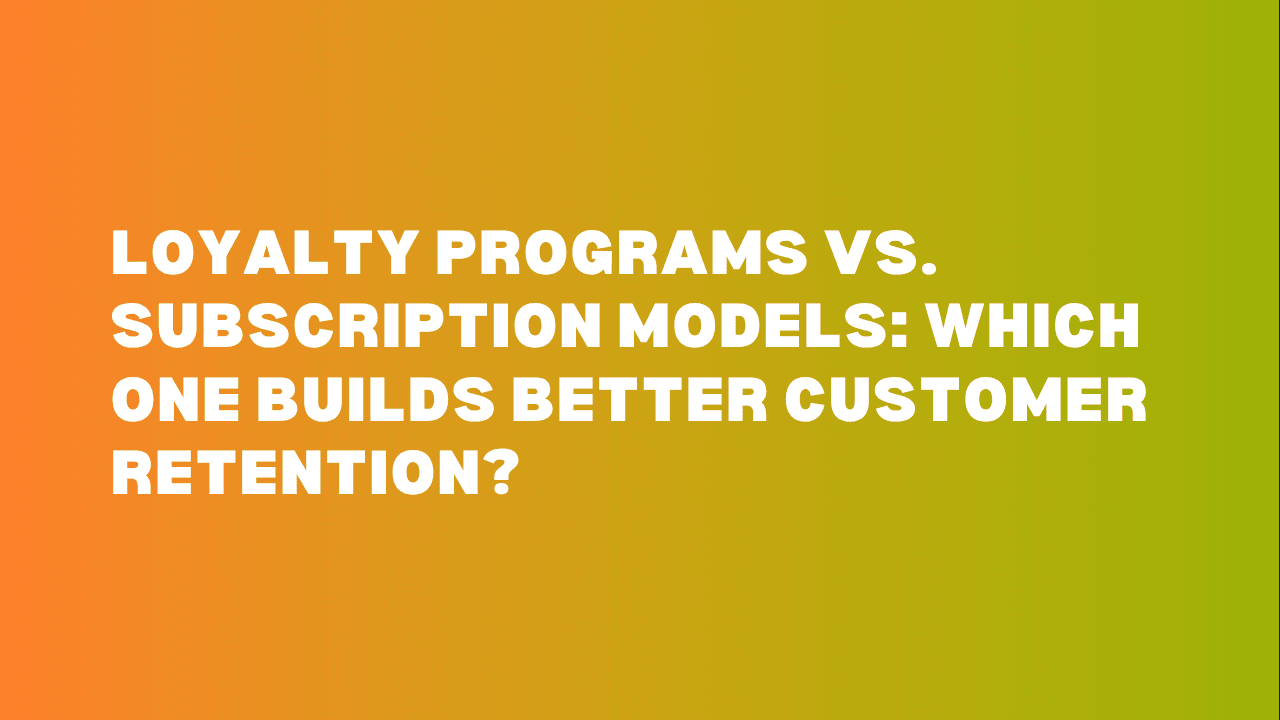Loyalty Programs vs. Subscription Models: Which One Builds Better Customer Retention?

Introduction
If you’re focused on increasing customer retention, you’ve likely considered two powerful models: loyalty programs and subscription models.
Both are designed to bring customers back. Both can increase lifetime value. But they work in very different ways.
So the big question is: Which one builds better long-term customer retention — loyalty or subscription?
Let’s break it down with real-world examples, benefits, challenges, and tips on choosing what’s best for your business.
What Is a Loyalty Program?
A loyalty program rewards customers for repeat behavior — like purchases, referrals, or reviews. Customers earn points, perks, or exclusive access in return.
Examples:
- Starbucks Rewards: Earn stars for each order, redeem for free drinks.
- Sephora Beauty Insider: Tiers based on spending unlock different benefits.
- Ziovy Loyalty: Enables small businesses to automate points, referrals, and reward campaigns affordably.
What Is a Subscription Model?
A subscription model charges customers on a recurring basis (monthly, quarterly, or annually) for continued access to a product, service, or benefit.
Examples:
- Amazon Prime: Annual fee for free shipping, media access, and exclusive deals.
- Netflix: Monthly subscription for unlimited streaming.
- Dollar Shave Club: Monthly delivery of grooming essentials.
Loyalty vs. Subscription: The Key Differences
| Feature | Loyalty Program | Subscription Model |
|---|---|---|
| Revenue Model | Free (usually) | Paid, recurring |
| Retention Tactic | Rewards + gamification | Habit + lock-in access |
| Customer Motivation | Earn & redeem perks | Convenience + value |
| Best For | Retail, eCommerce, DTC | Media, SaaS, replenishable goods |
| Time to Loyalty | Medium to long-term | Faster (if value is clear) |
When Loyalty Programs Work Best
- You sell non-subscription products (fashion, F&B, electronics).
- You want to gamify the experience (tiers, badges, referrals).
- You’re focused on emotional connection, not just utility.
- Your audience likes earning rewards over time.
Bonus: They're flexible — you can run seasonal campaigns, partner rewards, or referral bonuses.
When Subscription Models Win
- You offer recurring value (streaming, replenishable goods, software).
- Customers value convenience and predictability.
- You need predictable revenue for growth.
- Your product solves a consistent need.
Note: Subscription = built-in habit loop. Once the customer subscribes, they’re less likely to churn — as long as the value remains high.
Which Model Builds Better Retention?
It depends on your business model — but here’s the breakdown:
- Subscriptions have higher short-term retention because customers pay to stay.
- Loyalty programs build long-term emotional loyalty, even after a break in purchases.
Combined, they’re even stronger. Think of Amazon Prime: a paid subscription that also offers loyalty benefits like early access and exclusive deals.
Can You Combine Both? Absolutely.
Many modern brands are blending loyalty + subscriptions for maximum impact.
Example:
- Monthly subscription box (core products)
- Loyalty points for reviews, social shares, and referrals
- Early access for long-term subscribers
Platforms like Ziovy make this easier by integrating loyalty logic into subscription workflows.
How to Choose the Right Model for Your Brand
- Do my customers need this product regularly? → Go subscription
- Do my customers want to feel rewarded over time? → Add loyalty
- Is retention tied to engagement and value? → Consider both
- Do I sell products or services that benefit from upsells and referrals? → Loyalty is a must
Real-World Example: Loyalty vs. Subscription in Fashion Retail
| Brand | Model | Strategy | Retention Impact |
|---|---|---|---|
| H&M | Loyalty | Points, birthday rewards | Long-term, emotional loyalty |
| Rent the Runway | Subscription | Monthly designer rental | High short-term retention |
| Stitch Fix | Both | Subscription box + loyalty perks | Strong hybrid retention |
Final Thoughts
Loyalty programs and subscription models aren’t enemies — they’re tools. The right one (or combination) depends on your business, audience, and retention goals.
If you're just starting, a simple loyalty program is more affordable and easier to test. For recurring-value products, subscriptions create habit-forming retention.